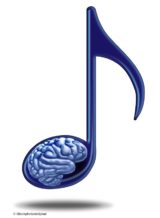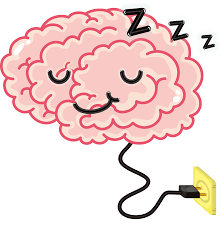
There was a recent article in my local newspaper about students, stress, and learning. Unfortunately, the article didn’t mention sleep, because sleep is a crucial factor both for alleviating stress and for the encoding and consolidation of memory. Exercise and good nutrition also play a role in learning and memory. So while we tend to think that sleep well, exercise more, and eat less is all we need to know, it’s worth looking at the interconnection of the three and at some recent research that shows how we can help facilitate better learning and memory.
We are all currently dealing with an unprecedented amount of anxiety caused by the intersection of the pandemic, racial tensions, and extreme political divisiveness. The pandemic has caused most performing arts organizations to cancel their entire 2020-2021 seasons, leaving performers in some cases without an income or healthcare, in other cases with greatly reduced incomes and no meaningful work. College professors and public school music teachers scramble to offer some kind of hybrid model of in-person and online teaching. Music students are in a strange world of hybrid classes, trying to do lessons, performances and juries online, and having no access to the kinds of collaboration during rehearsals or face-to-face lessons in which learning thrives.
In spite of all of these limitations, the creativity of countless groups and individuals has led to remarkable innovations in presenting concerts and other musical events online. But cumulative stress is taking a toll. We have all endured mental fatigue and exhaustion. In August, former First Lady Michelle Obama revealed that she was battling “low-grade depression” as a result of COVID-19 and ongoing racial tensions. According to Census Bureau Data from May, one in three Americans was dealing with symptoms of stress or anxiety at that time. Polling by the Kaiser Family Foundation (KFF) in July put that number at 53%, and in a Harris poll released in October, 68% of Americans say the 2020 presidential election is a significant source of stress.
Sleep
With stress rates skyrocketing, many of us are not sleeping well. But lack of sleep raises anxiety levels, so it’s a cycle. We can’t sleep because we are stressed, and lack of sleep makes us feel more stressed. According to recent research at the University of California, Berkeley, a sleepless night can raise anxiety levels up to 30%, and that is magnified if you have multiple sleepless nights. In addition to lack of sleep causing our anxiety levels to rise, lack of sleep also makes our musical memory less accessible.
When we perform, we are using two kinds of memory. Implicit (procedural) memory is memory for how to play our instrument, for motor skills. Explicit (declarative) memory is memory for the music itself, for all of the details we need to know about a piece in order to play it – key, structure, notes, rhythms, etc. Swedish researchers did a study of both procedural and declarative memory under sleep deprivation. Participants learned a declarative memory task on a computer and a procedural memory task that involved tapping finger sequences. After a night of sleep in which half of the participants slept for 8 hours and half for 4, they were tested on both kinds of memory tasks. They all did equally well on both, whether they had a full night sleep or a half night. But when subjected to stress, they all still did fine on the procedural task, the motor memory, but those with the 4 hours of sleep showed significant impairment on the declarative task, the memory for facts. After sleep deprivation, we don’t lose our memory for how to play our instrument, that is too deeply ingrained. But we do lose access to memory for all the details of the piece, and that is what derails us when we have a memory slip. See Stress, sleep, and performance

So sleep is extremely important to keep anxiety levels down and to help us access our memory, but it is also very important for the initial formation of memory. Since the 1920s, we’ve known that sleep is important for memory formation. But more recently, researchers have found that sleep is important prior to learning the information in order for the brain to be prepared to properly encode the memory. With sleep deprivation, regions of the brain that are supposed to be involved in encoding memory underperform, and other areas that aren’t usually involved, overcompensate. So the brain is not working efficiently, and the memory doesn’t become securely encoded. See Sleep-Dependent Memory Processing by Matthew Walker.
Sleep after learning is important for memory consolidation, for making memory stronger and more stable. It has been found to be necessary for the consolidation of declarative memory, memory for facts, as well as for procedural memory, motor skills. In a study at the University of Texas, Austin, non-pianist musicians who learned a piece at night were found to be able to play it faster and with better accuracy after a night of sleep – even with no additional practice. See Just sleep on it!
It’s extremely important to note here that with normal sleep, positive, neutral, and negative memories are all encoded and consolidated equally. With sleep deprivation, the memories that are encoded and consolidated the most strongly are the negative ones. So any negative associations a student has with a piece or with performing are going to be consolidated far more strongly than positive associations. (See Walker study above.) This can exacerbate performance anxiety.
Good, consistent sleep is important to keep our anxiety levels down, to prepare our brains for encoding new musical information, and to consolidate that musical information after practicing.
Exercise

I used to be a regular at the gym, but not since the corona virus entered our lives. My exercise consists of walks and an exercise program at home – certainly not as vigorous as I was doing at the gym. But exercise is important for two reasons: the right kind of exercise can improve the quality of sleep, which as we’ve seen, is important for memory encoding and consolidation. And exercise itself has been shown to improve memory – if it is done within a specific time frame.
The hippocampus is a brain structure that is instrumental in consolidating short-term memory into long-term memory. A study in the Netherlands showed that exercising four hours after studying, as opposed to immediately, leads to more activity in the hippocampus and also to better recall after 48 hours. See Exercise and memory.
While vigorous exercise before bedtime raises your heart rate and makes sleep more difficult, exercises that help you relax not only help you fall asleep more easily, but also remain sleeping throughout those sleep cycles that are so important for encoding and consolidation of memory. A recent column in the New York Times suggests a “before bed” exercise routine to improve the quality of your sleep. Rest Better with Light Exercises
Nutrition

In the early weeks of the corona virus aluminum baking pans, the size in which to bake small loaves of bread, were flying off the shelves. A study that analyzed searches for quarantine recipes found that during the month of April, searches for banana bread were the most popular in every state in the country. Banana bread is comfort food, and especially during the early days of quarantine, people wanted comfort. As the months went by, some studies reported that people were trying to eat “healthier.” Others that we were all snacking far too much. But it’s probably safe to say that our eating habits have changed in one way or another during the past six months.
We eat because we are stressed or bored, and then we often eat snack food, not fresh fruits and vegetables. When we sit at a computer for hours on end and don’t have a set schedule, it’s easy to snack. We eat for comfort, and comfort food usually isn’t the healthiest. But in order to efficiently learn the music we want to learn or to learn music theory, history, or anything else, our brains need to be operating efficiently. Eva Selhub, writing for Harvard Health Publishing, compares the brain to an expensive car which functions best when it gets premium fuel. And that means eating “high-quality foods that contain lots of vitamins, minerals, and antioxidants.”
Many studies have shown a connection between impaired brain function and a diet high in refined sugar and saturated fats. So in order for our brains to be able to efficiently encode and consolidate music, we need to eat a healthy diet. We need sleep to allow our brains to encode and consolidate the music we are trying to learn and also to ward off anxiety, and we need to exercise not only to help promote memory, but also to help us sleep better. Diet, sleep, and exercise are all related. So grab a healthy snack, do some light exercise, and take a nap.

4 responses to “Learning and memory: the role of sleep, exercise, and nutrition”
Hi, Lois! I always appreciate you sharing new information about music and our brains!
This article had a lot of facts. Sleep is so important, and stress right now has affected my sleep.
I find productive and positive activities during my days reduces my stress plus keeps me from focusing on Covid The current national news seems 95% negative so I understand why people don’t watch or listen to it. And music always Soothes me!
Thanks, Leah, It’s kind of nice to know that great things are going on in our brains in terms of learning while we are sleeping!
Thank you for this needed information. Important article well written. I will share with students and colleagues.
Thanks, Marilyn!